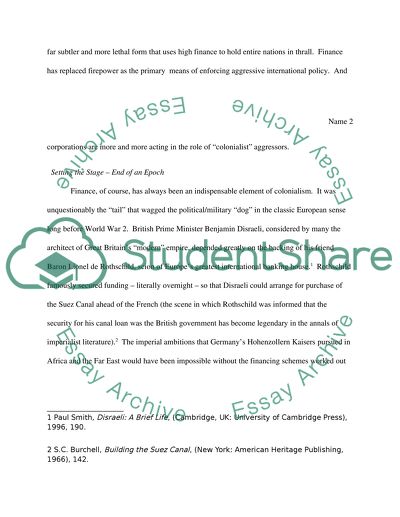Cite this document
(“From firepower to finance:the evolution of colonial and neo-colonial Research Paper”, n.d.)
Retrieved from https://studentshare.org/history/1427309-from-firepower-to-financethe-evolution-of-colonial-and-neo-colonial-power
Retrieved from https://studentshare.org/history/1427309-from-firepower-to-financethe-evolution-of-colonial-and-neo-colonial-power
(From Firepower to finance:The Evolution of Colonial and Neo-Colonial Research Paper)
https://studentshare.org/history/1427309-from-firepower-to-financethe-evolution-of-colonial-and-neo-colonial-power.
https://studentshare.org/history/1427309-from-firepower-to-financethe-evolution-of-colonial-and-neo-colonial-power.
“From Firepower to finance:The Evolution of Colonial and Neo-Colonial Research Paper”, n.d. https://studentshare.org/history/1427309-from-firepower-to-financethe-evolution-of-colonial-and-neo-colonial-power.


